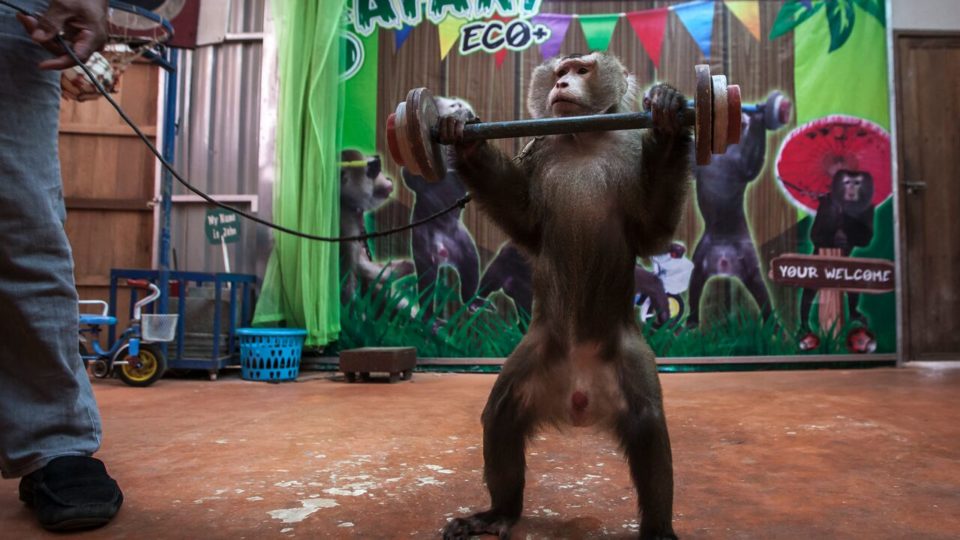Environmental photojournalist Aaron Gekoski, 37, an award-winning British photographer based in Borneo, recently spent time in Thailand documenting the cruelty being done to animals in some of Thailand’s countless animal camps, shows, parks, and attractions. They work in shows that hold a total of 500,000 animals captive and attract more than 10 million visitors a year — most of them ignorant of how the “stars” of the shows are being treated.
His shocking series takes viewers to attractions where elephants, tigers, crocodiles, orangutans, chimpanzees, snakes, manatees, monkeys, and more are exploited. In the series, they are being held in tiny cages, teased, taunted, force-fed, made to wear clothing, perform tricks and be struck — and worse — when they disobey.
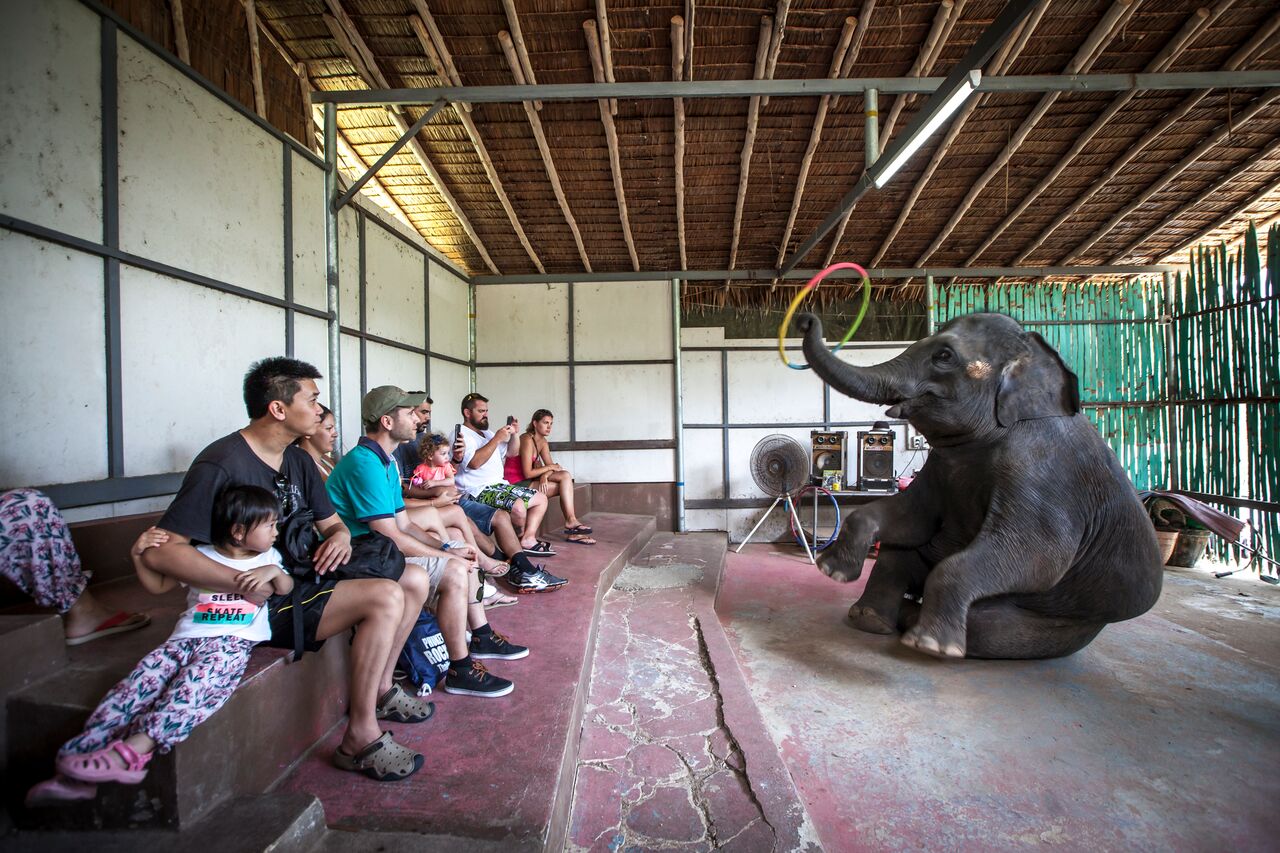
When Coconuts chatted with Gekoski, who was a winner at the 2017 Wildlife Photographer of the Year awards, he revealed that he spent two weeks in the country in February to document the cruelty. He noted that most people don’t realize the spirit-breaking torture that these animals have to got through in order to perform these shows.
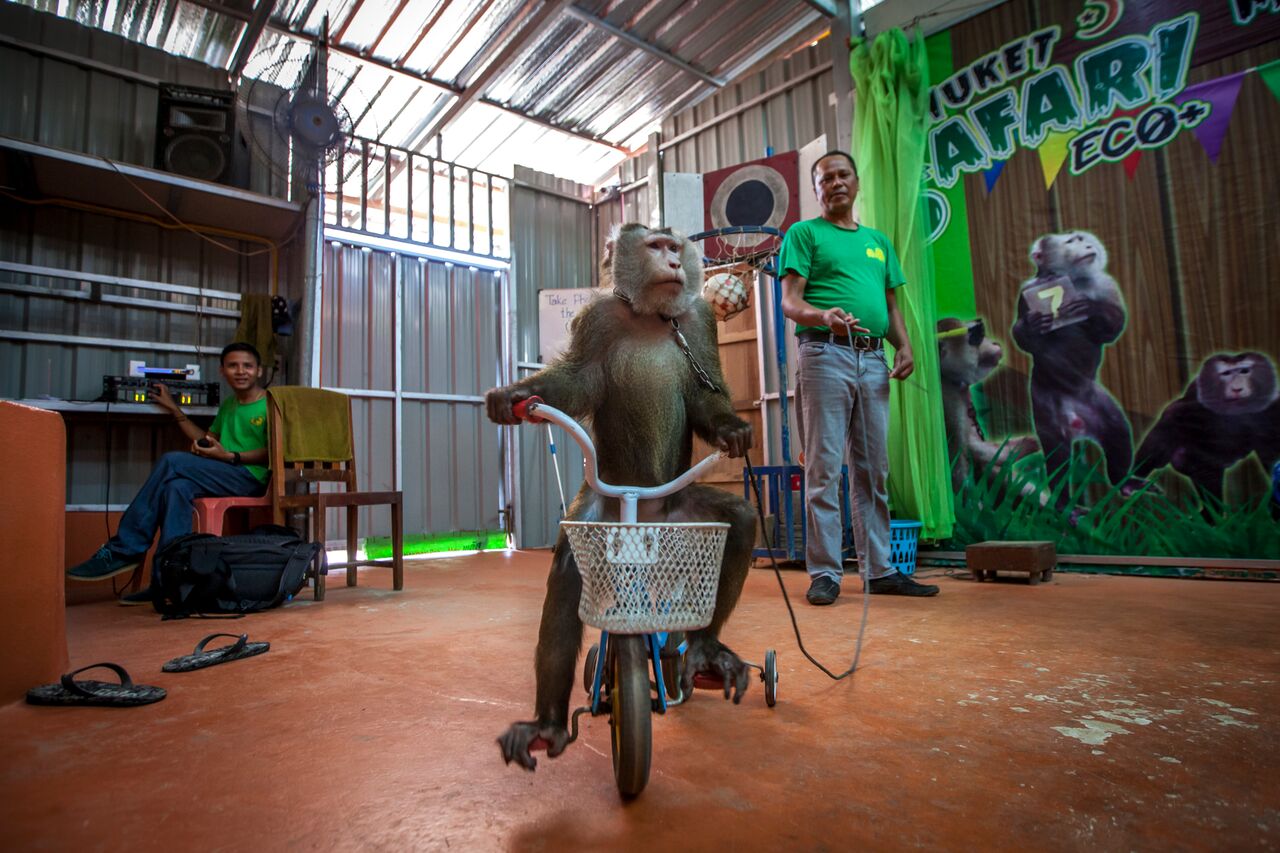
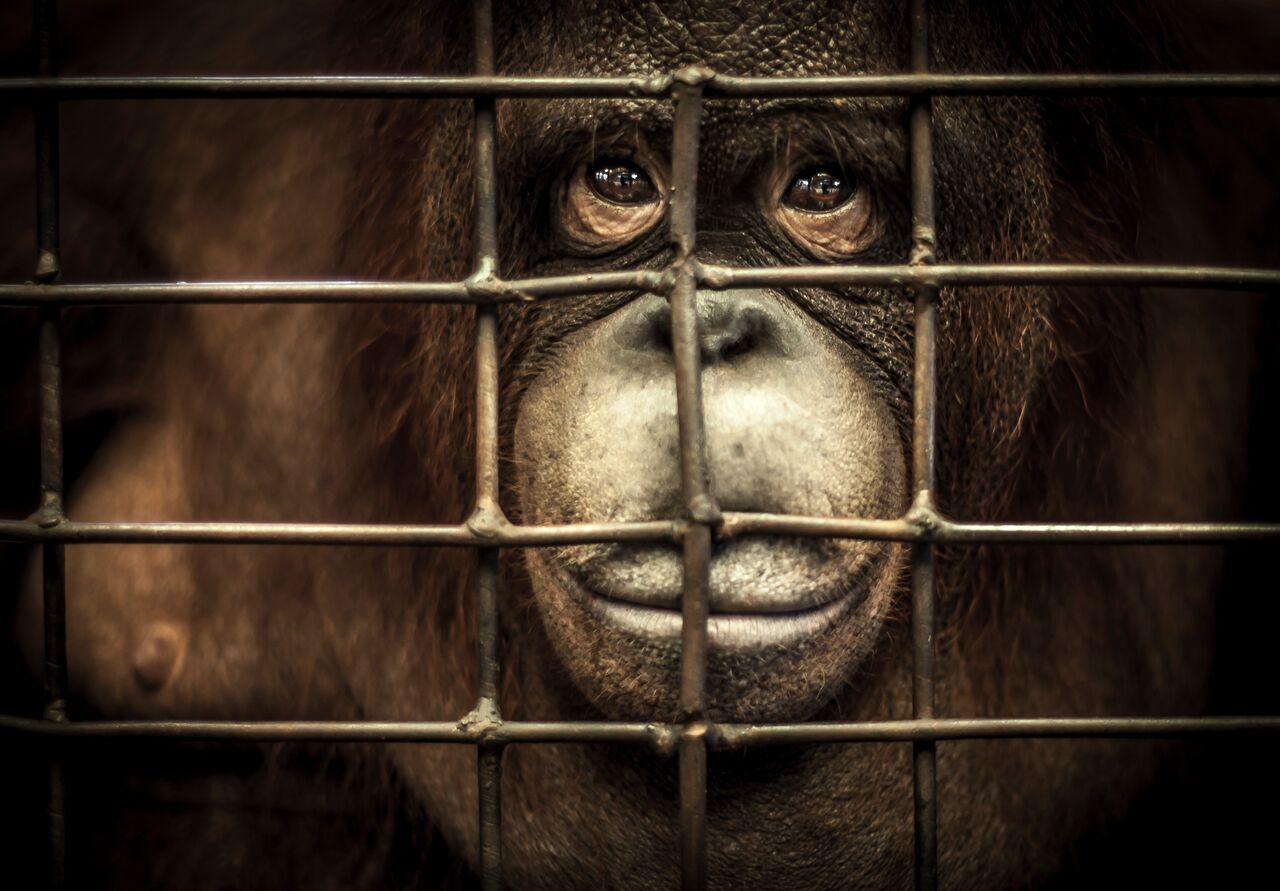
Among the places he visited were Safari World, Pata Zoo, and Phuket Zoo. Part of the reason he took the photos is to draw attention to these cruelties and help put a stop to them.
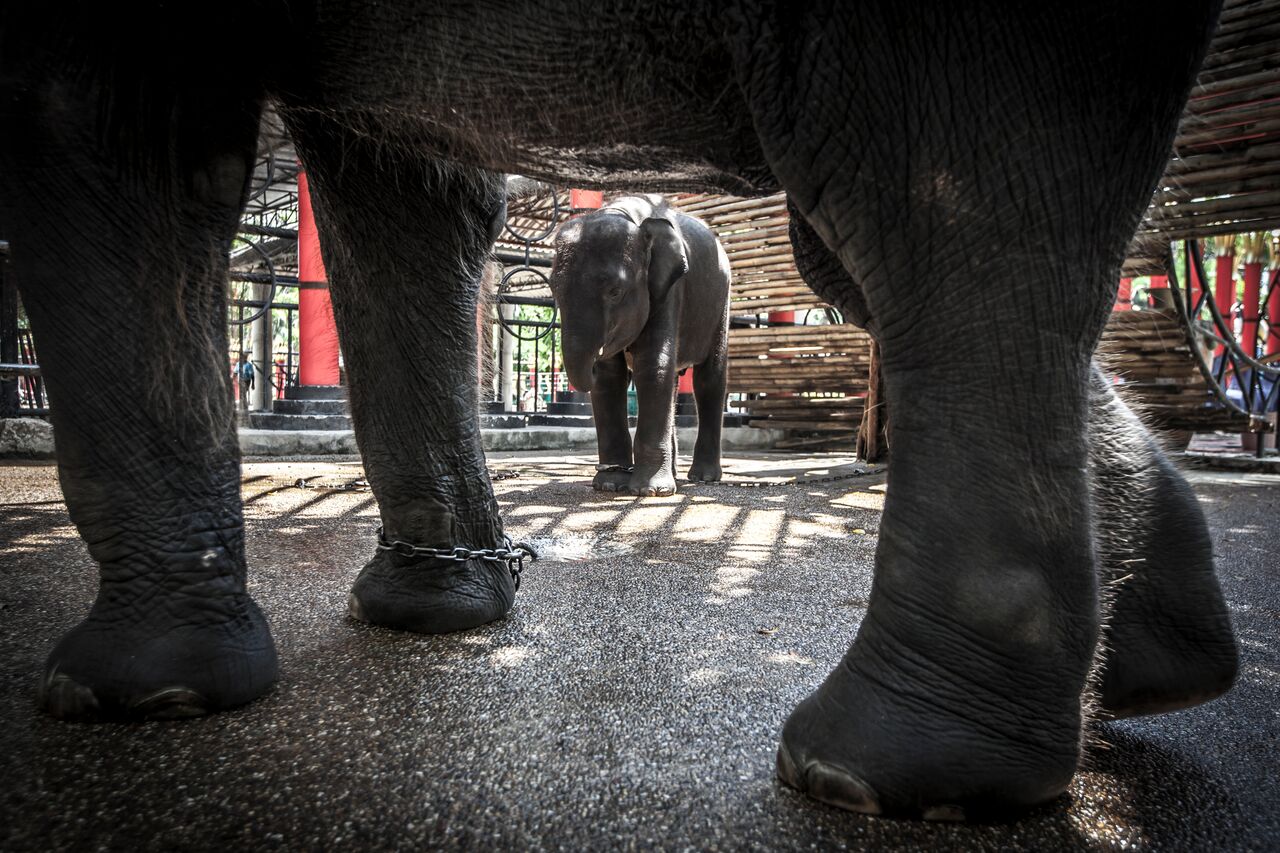
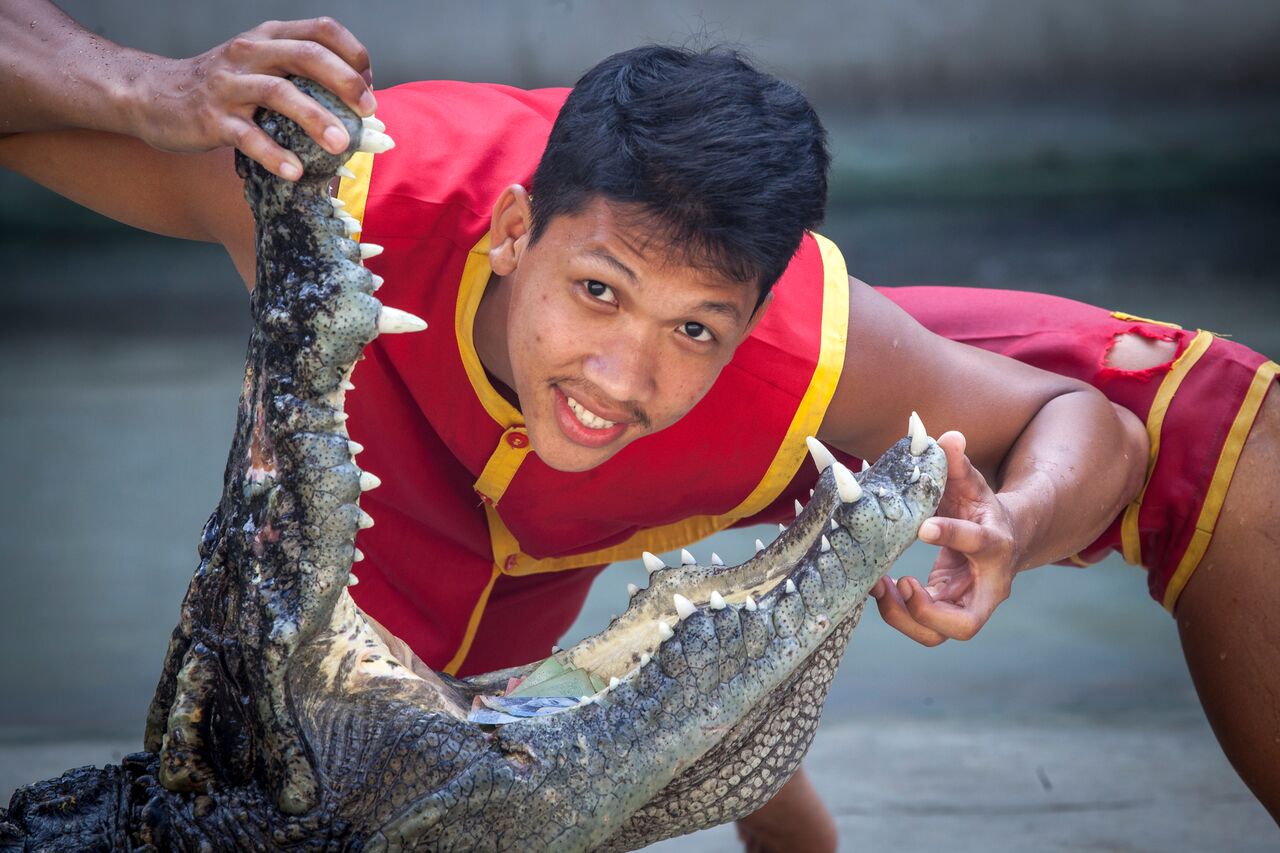
When asked how he gained access to these attractions, which are notoriously hostile to journalists, he said that he simply went as a regular customer in order to document the sad state. He calls Thailand “the epicenter of cruel wildlife tourism.”
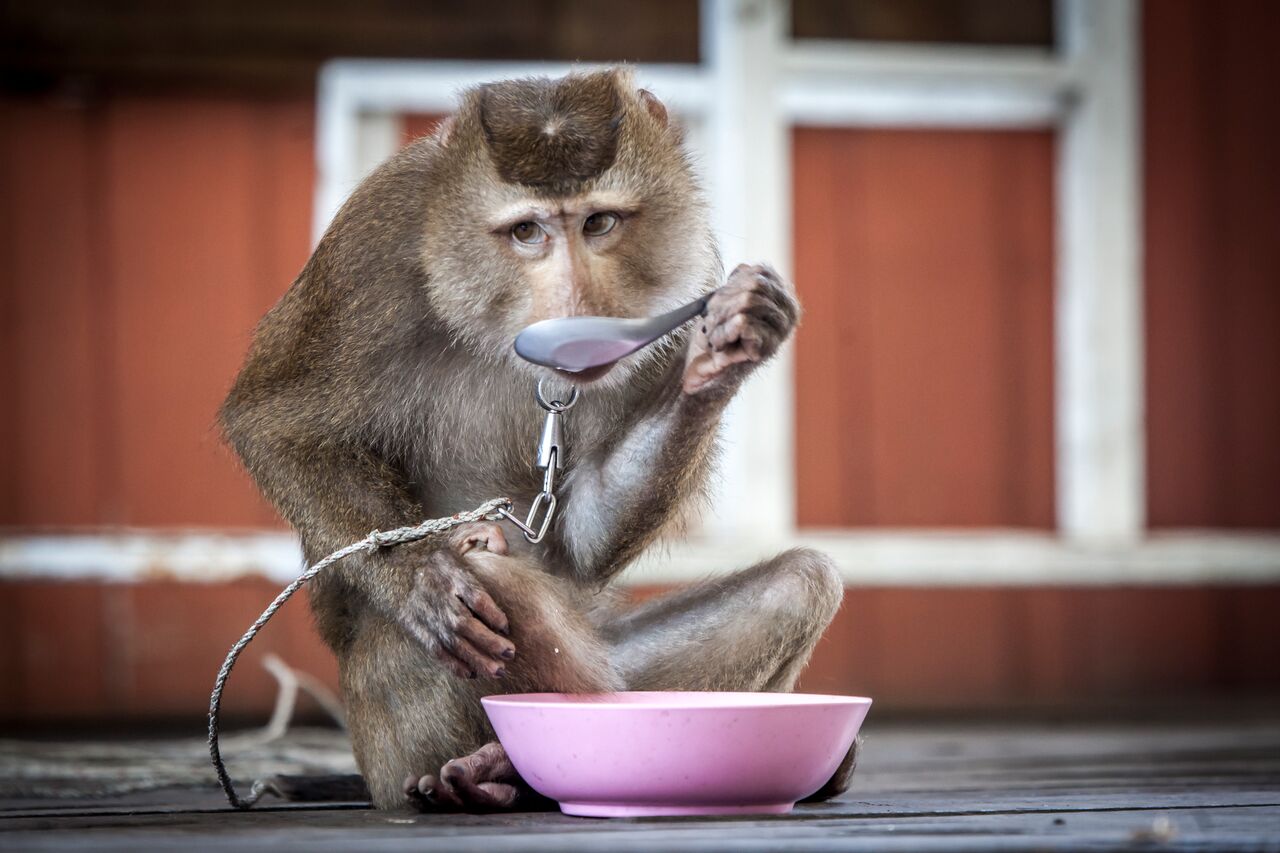

He has started a GoFundMe to raise money to return to Thailand and make a 30-minute documentary on the subject of Thailand’s abused animals forced to work in attractions.
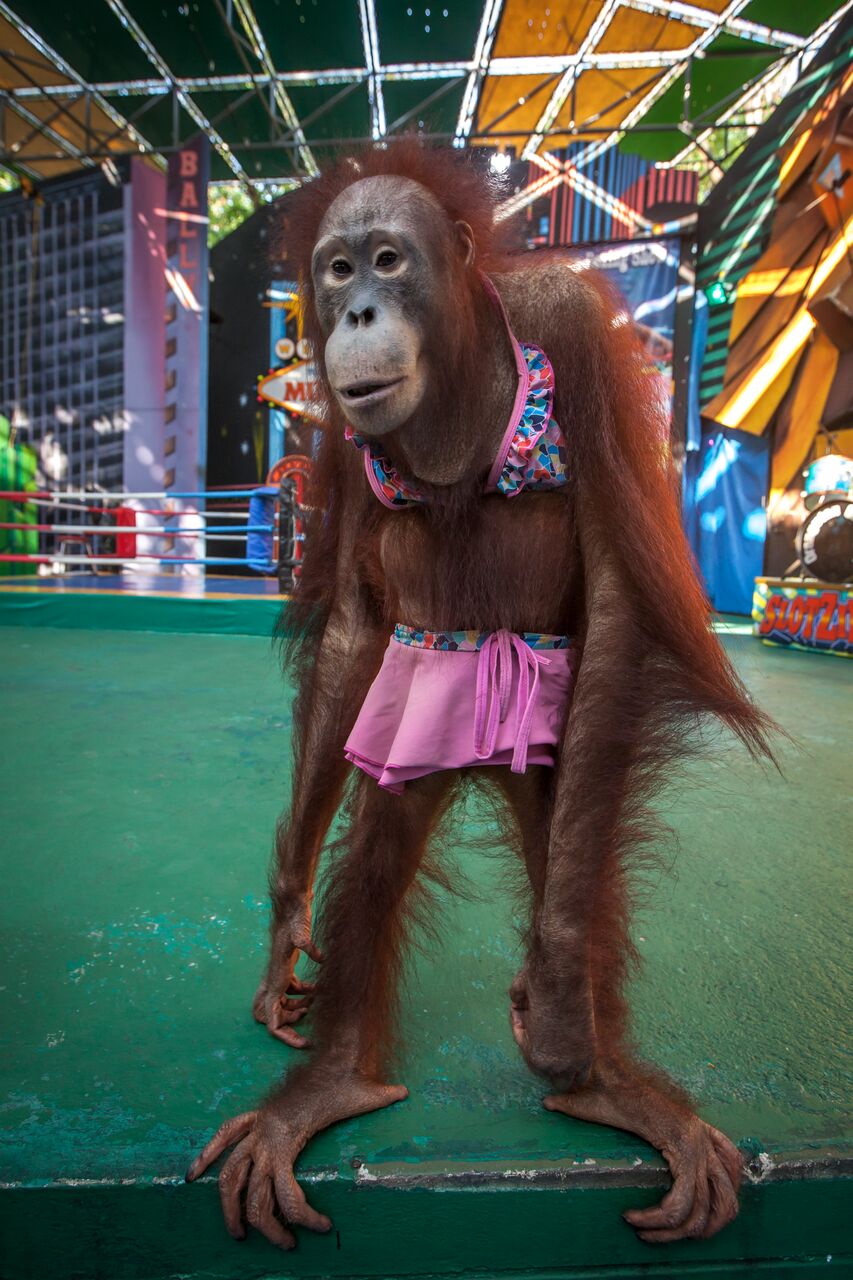
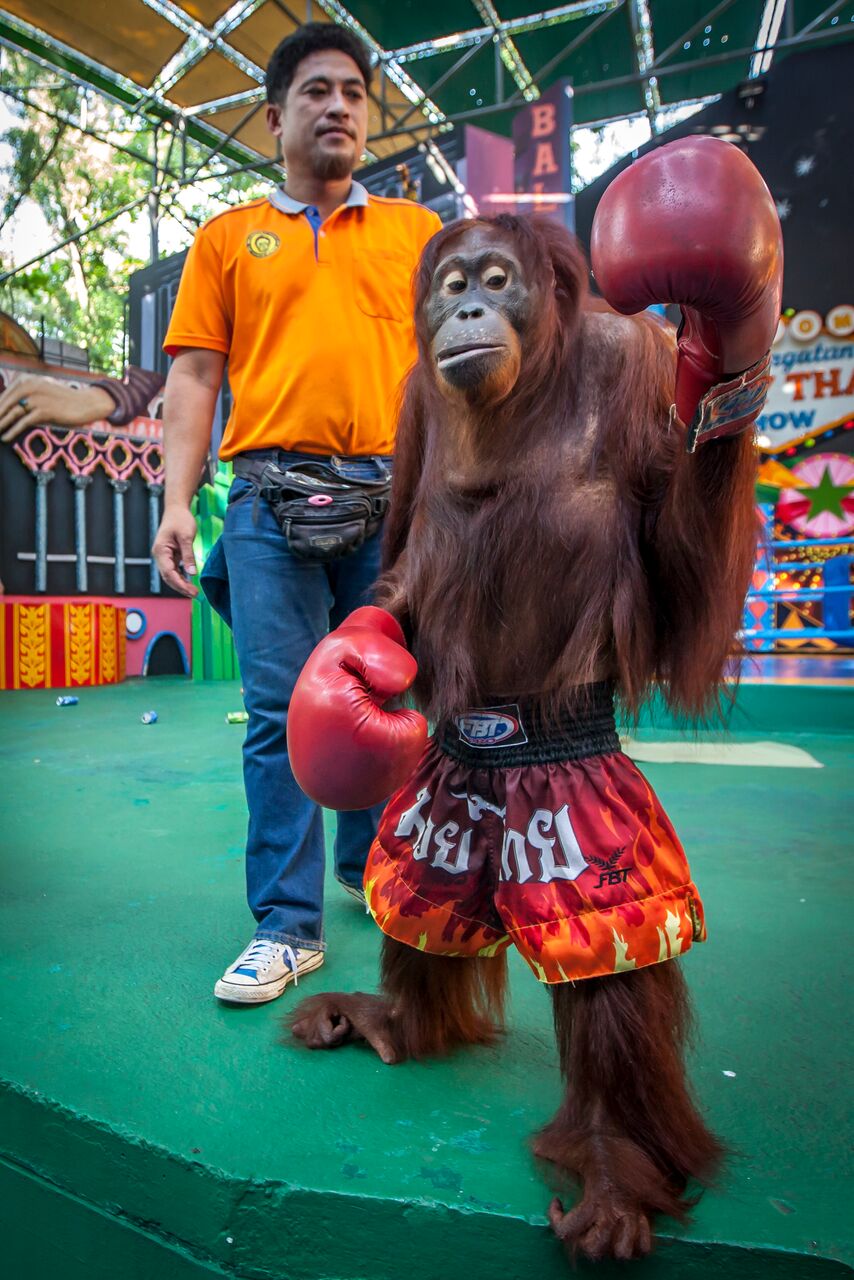
He would also like to create a website and app to let users “Raise the Red Flag” on abusive attractions. The public would be able to upload photos and videos to voice their concern. The site would, in turn, be given to police and other authorities to help stop offenders that are breaking laws.
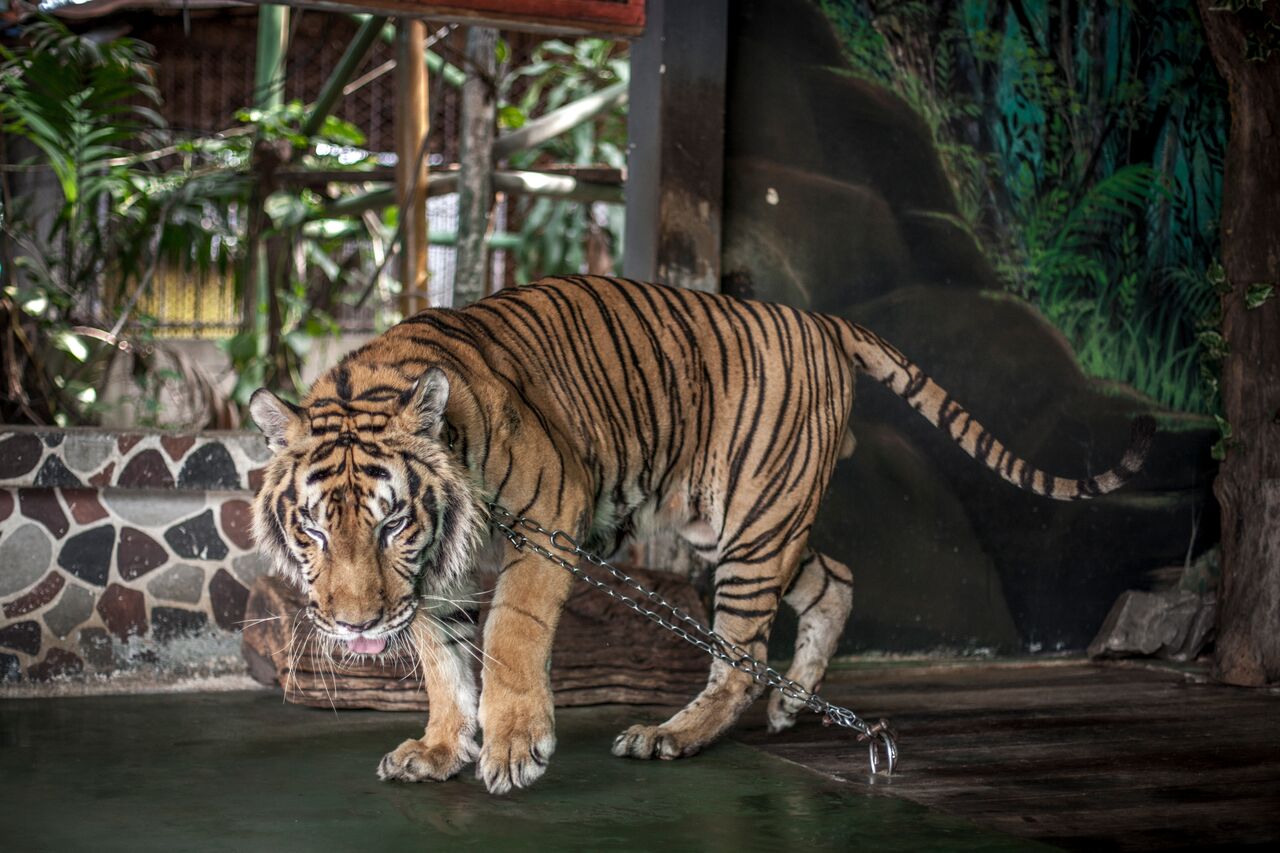
As most people that learn about these attractions do, he warns visitors to avoid posing for photos with tigers or other captive or wild animals and not to ride elephants.
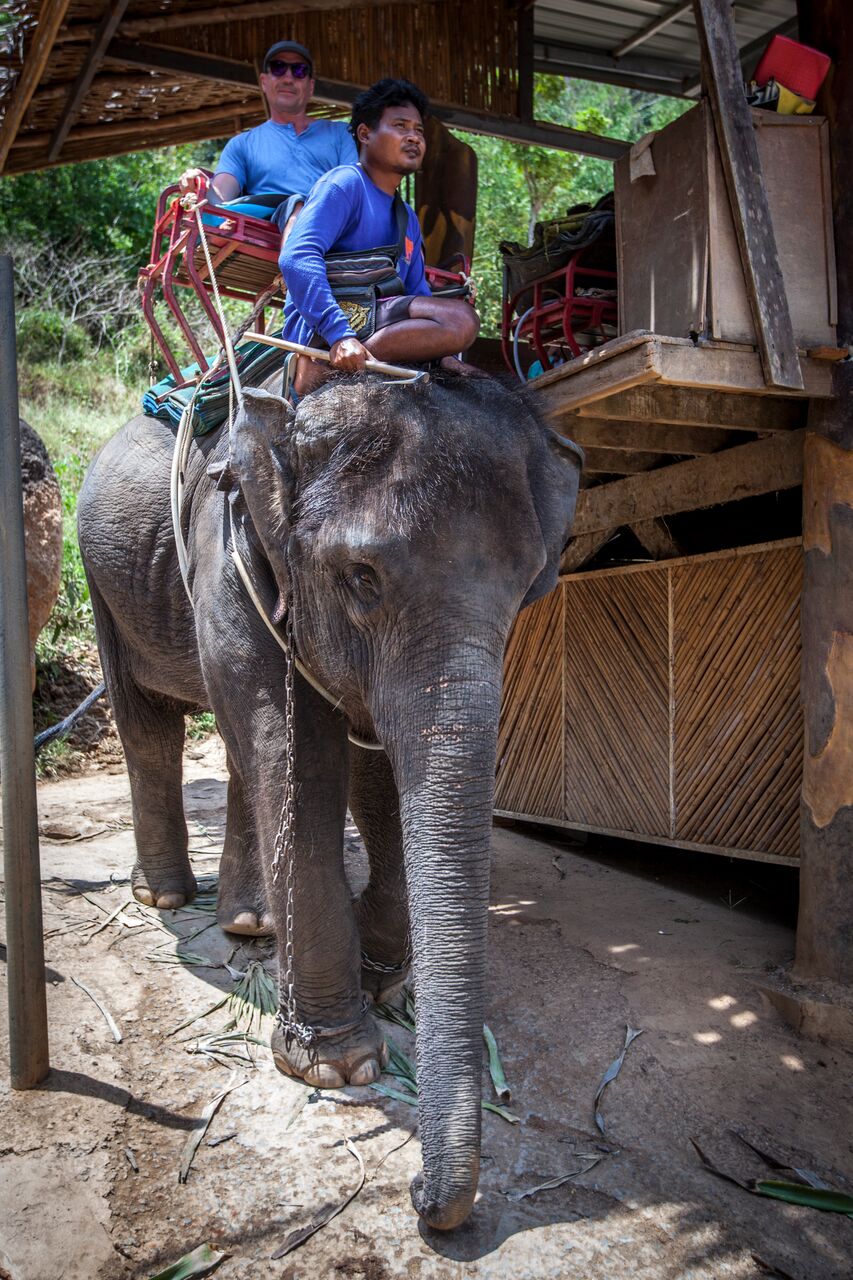
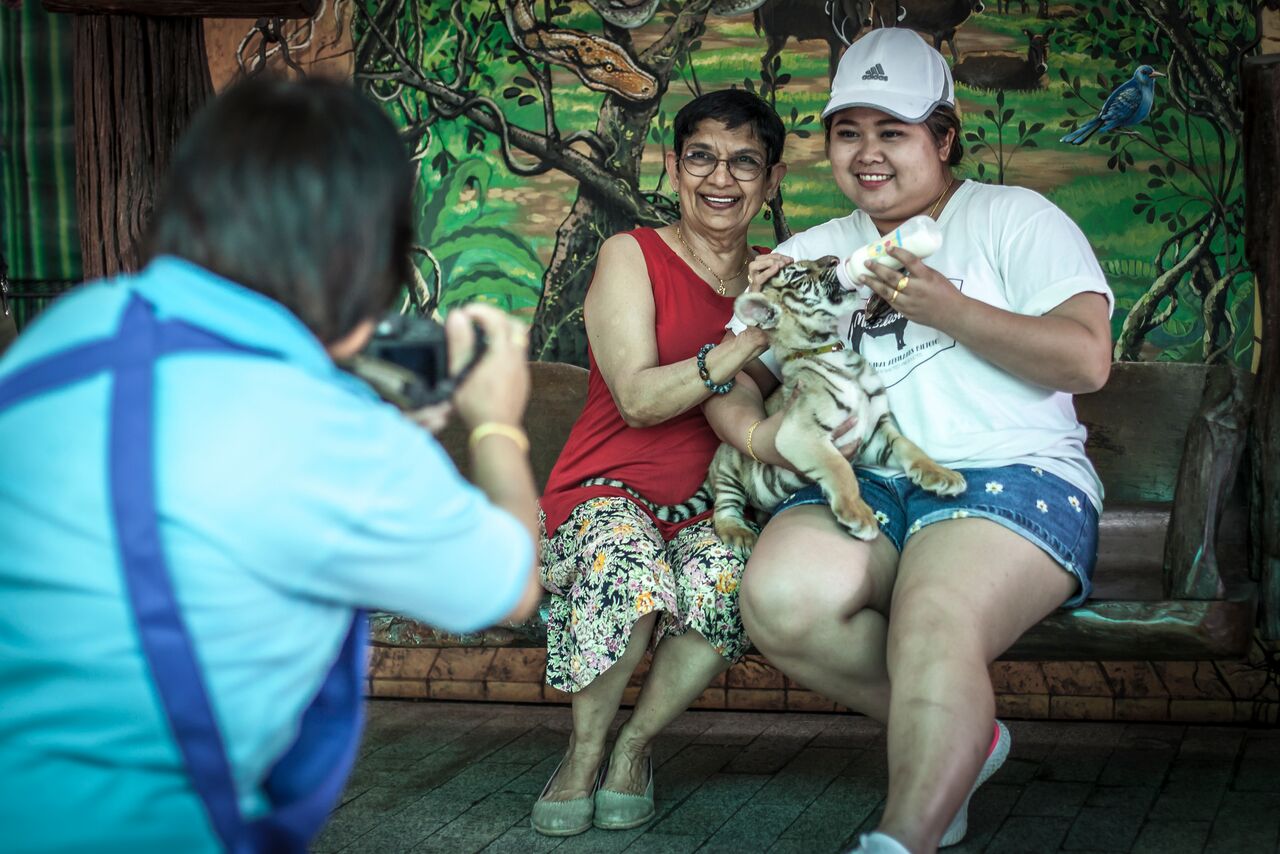
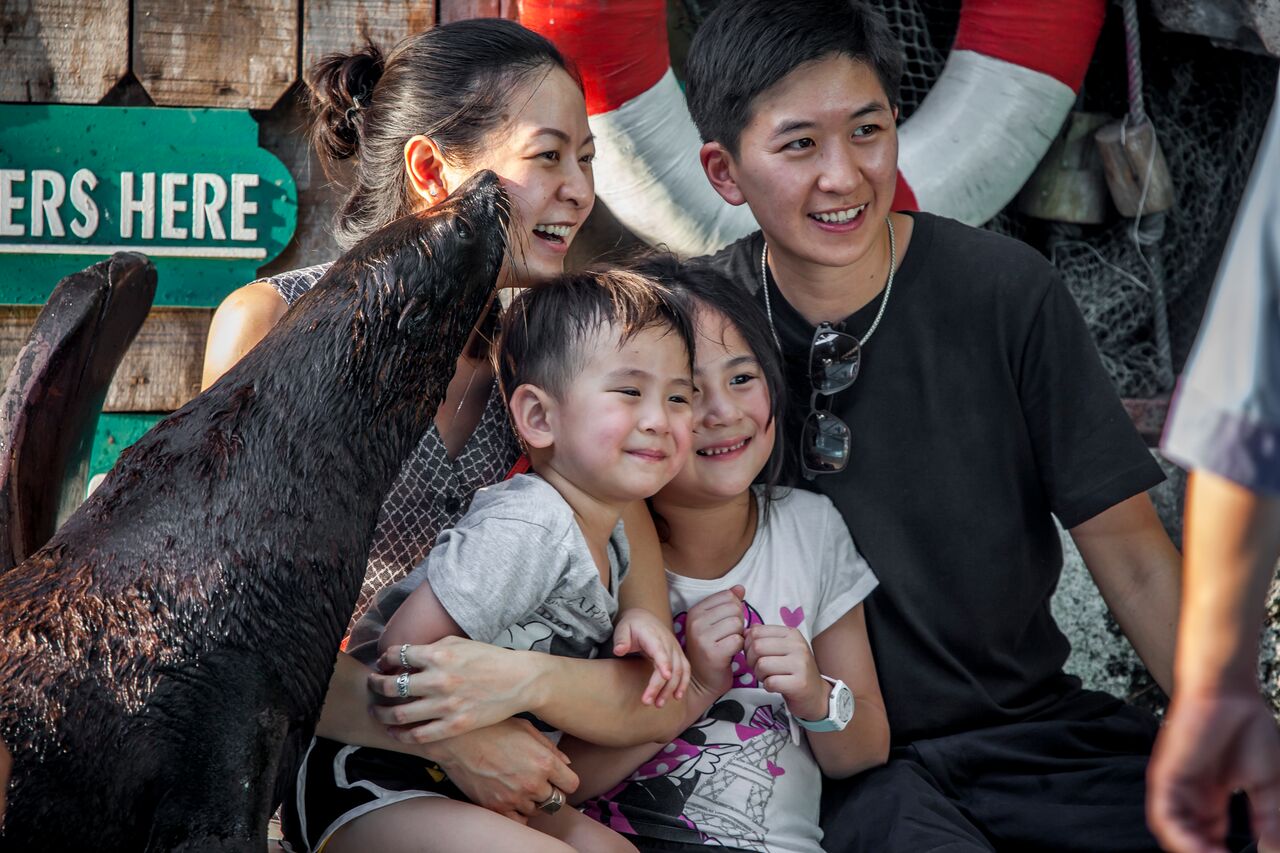
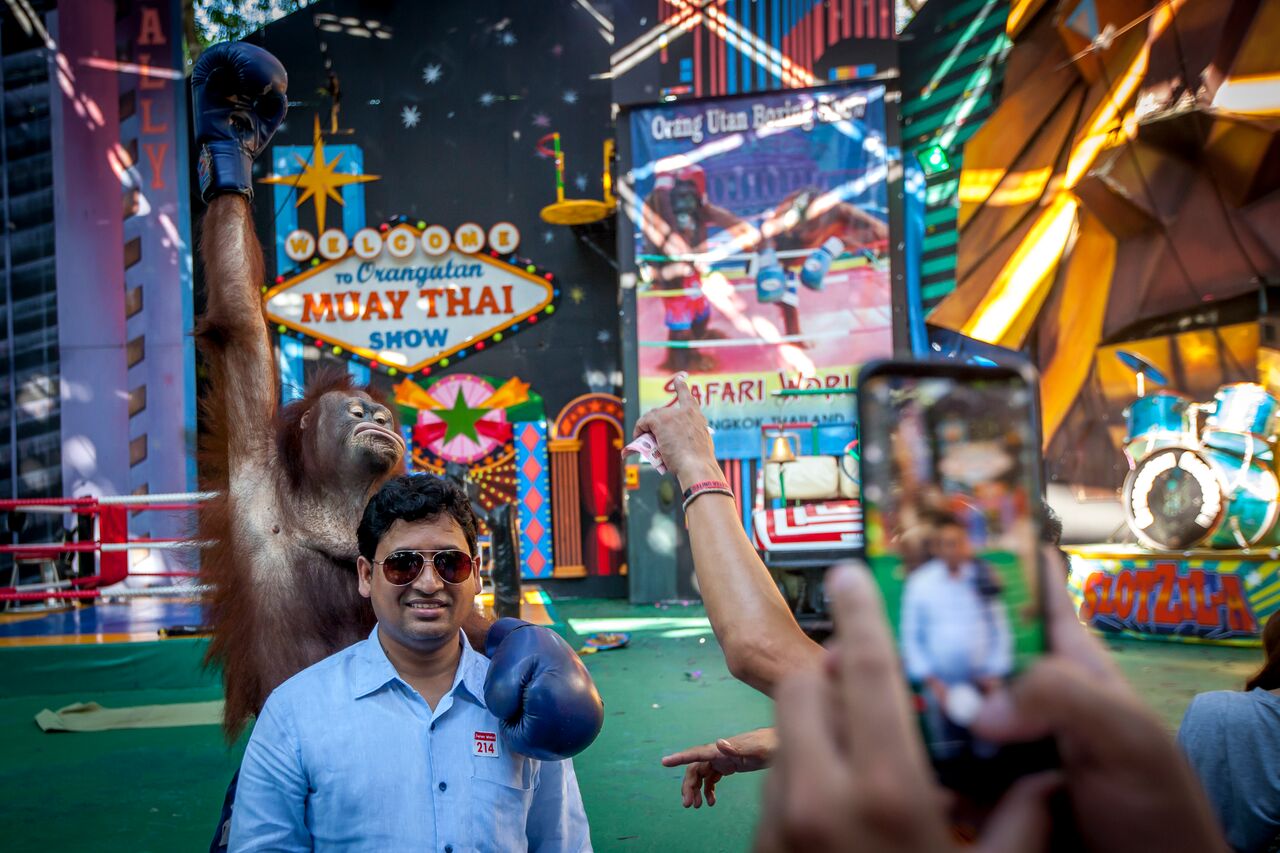
He noted that people can voice their dissent in an immediate way by not visiting or spending money with these kind of establishments, some of which operate legally while others don’t.
See more of Gekoski’s work here.
Related:
Shows, selfies, and shaming: Experts weigh in on elephant tourism in Thailand
